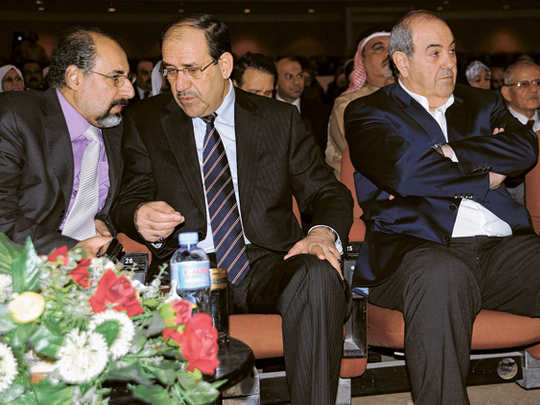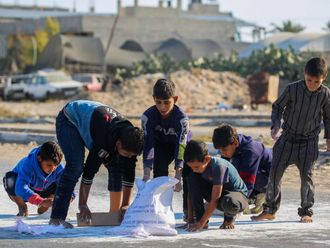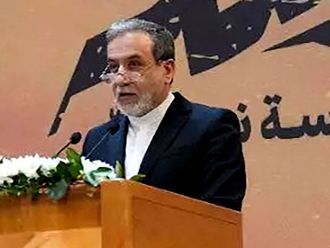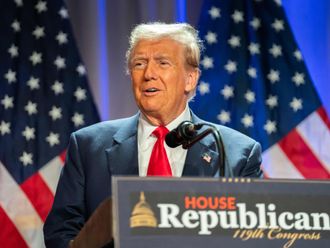
Baghdad: The head of Iraq's main Sunni-backed political group has pronounced a new power-sharing deal dead and predicted more violence, just days after the accord aiming to end political infighting was reached.
Former prime minister Eyad Alawi's Iraqiya was the final big group to agree to join a coalition this week in an accord that gave Shiite Prime Minister Nouri Al Maliki a second term.
But two-thirds of Iraqiya members walked out of parliament on Thursday saying a deal between blocs was being violated.
Alawi said some Iraqiya members might join the government, but the "main bulk" of them, including himself, would stay out.
‘It's finished'
"We think the concept of power-sharing is dead now," Alawi told CNN in an interview. "It's finished."
Asked how the end of a power-sharing deal might affect a future government, he said, "For Iraq, there will be tensions and violence, probably."
However, other Iraqiya figures said yesterday the party still planned to join the government, and one called the walkout from parliament a "misunderstanding".
Iraqiya's shifting position heightens concerns about the future of the government deal, which ended eight months of rancorous bargaining among Shiite, Sunni and Kurdish factions.
Al Maliki has enough support from Shiite and Kurdish parties to rule without Iraqiya, but Washington and Iraq's Sunni Arab neighbours are anxious to ensure that the Sunni-supported bloc is also represented.
Iraq needs a stable government to rebuild infrastructure and exploit its vast oil wealth while violence ebbs seven years after the US-led invasion that ousted dictator Saddam Hussain.
Under the power-sharing deal reached three days ago, politicians divided the three top posts -- prime minister, president and speaker of parliament -- among the main ethic and sectarian political blocs.
Lawmakers elected Osama Al Nujaifi, a Sunni leader of Iraqiya, as speaker, and reappointed Jalal Talabani, a Kurd, as president. Talabani then nominated Al Maliki as prime minister. Alawi was made head of a yet-to-be-created policy council.
But the show of unity, which had arch-rivals Al Maliki and Alawi sitting side-by-side in parliament, quickly unravelled when about two-thirds of Iraqiya's lawmakers walked out.
Alawi told CNN he was thinking of forming a parliamentary opposition rather than taking part in the government.
Theatre
"I will not be a part of this theatre," he said. "This is a new dictatorship that is happening in Iraq."
Other Iraqiya leaders and members, however, said the bloc had not reversed its decision to join the government.
"Iraqiya will take part in the government," said Mustafa Al Hiti, a senior member of Iraqiya.
Jaber Al Jaberi, an Iraqiya lawmaker, called the walkout from parliament a "misunderstanding."
Do you think there is a way for the deal to work? Do you see more violence in Iraq in the near future?











